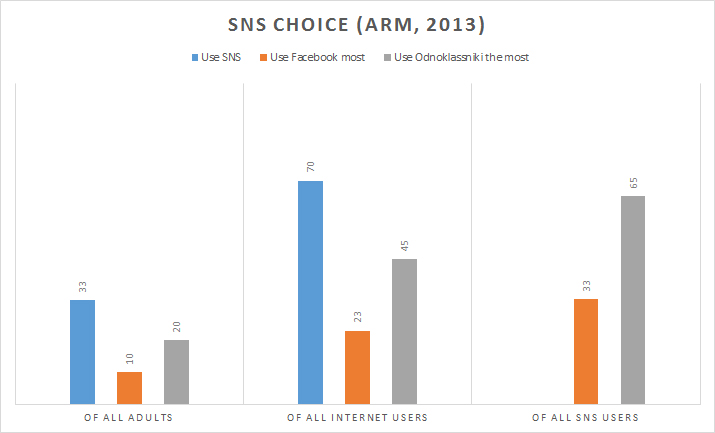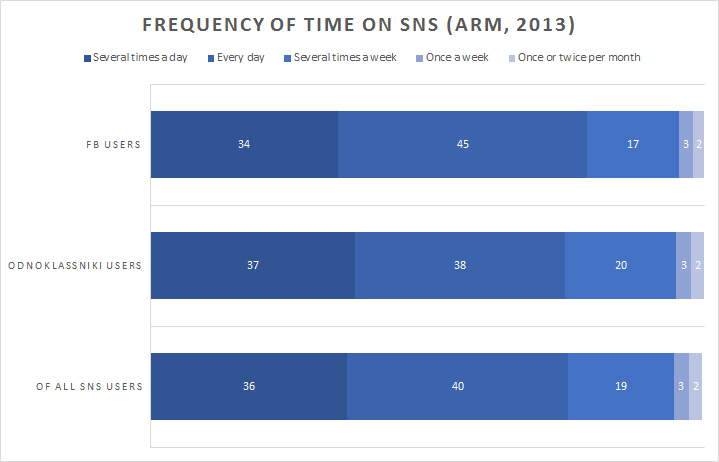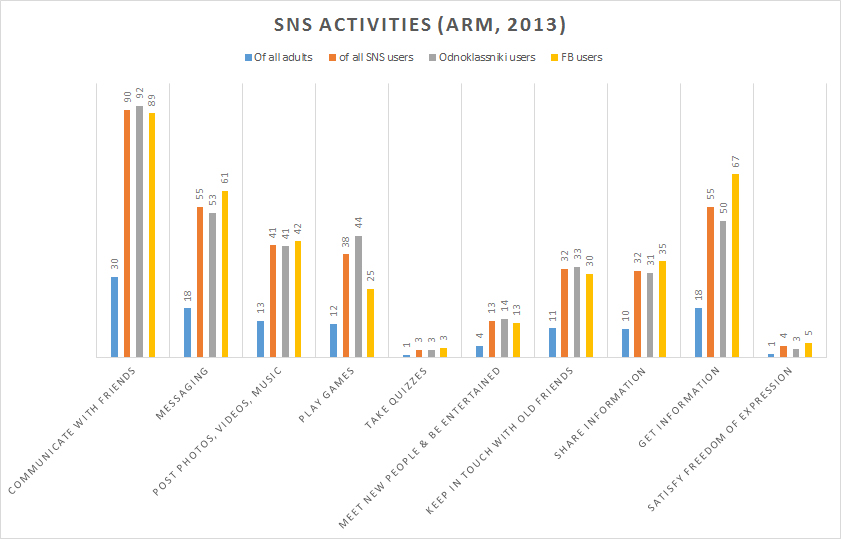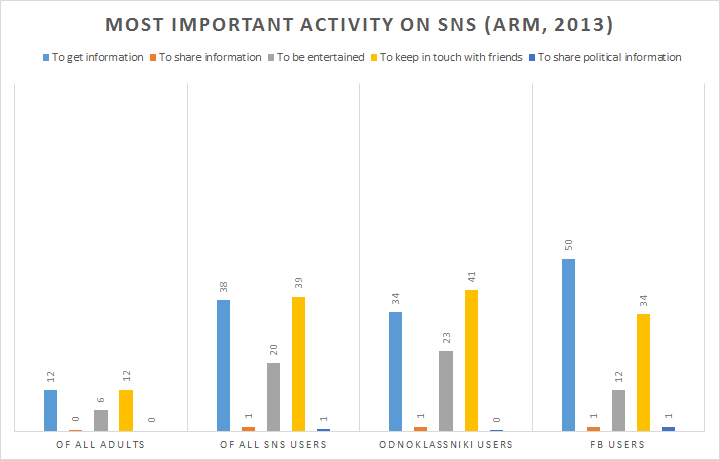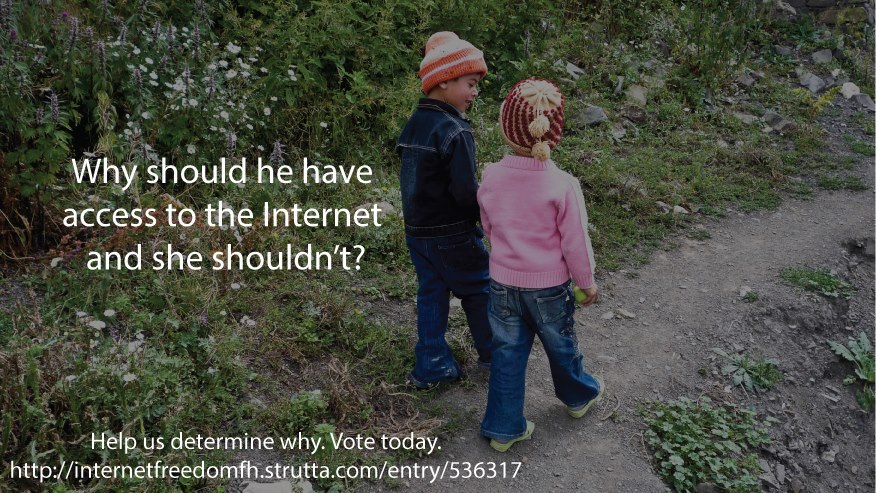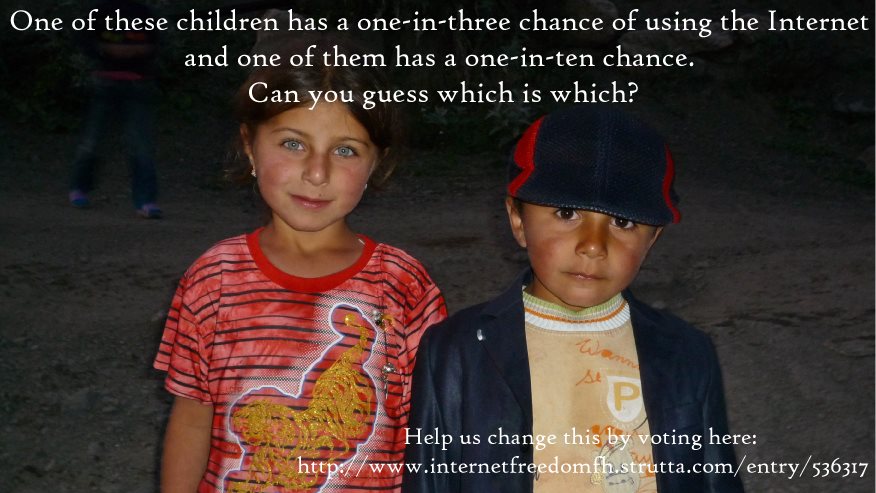The Internet is Good For You!
The Internet is a strange thing. In the early life of the Internet there was a lot of rhetoric about how bad the Internet would be for all sorts of things – relationships, social life, civic engagement, etc. Now we know that 1) the Internet is here to stay and 2) the effects of the Internet aren’t really good or bad, but that affordances of the Internet (or any technology) can impact particular social processes/mechanisms in ways that change outcomes.
This week there is a tremendous effort in Azerbaijan to raise money for a young woman with cancer. The Internet and social media allow for word to spread about the campaign, give information on how to donate, and promote the campaign through photos. Moreover, the social aspect of social media allows people to share the campaign with their friends, show that they are themselves participating (and thus showing everyone – hey! I’m a good person!), and additionally give a little FU to the government medical system that is unable to pay for this young woman’s treatment.
Because of this, as well as my graduate course I’m teaching about pro-social outcomes of technology use, I wanted to test to see the Internet and social media’s influence on particular pro-social outcomes (of civic engagement specifically) in Azerbaijan.
I did some analysis with the 2012 Caucasus Barometer and here is what I found.
Donating to charity (even via SMS) is popular in Azerbaijan with 18% of adults having done it in the last 6 months. Education, economic status, and being male mattered a lot here, but Internet frequency did too! Surprisingly perhaps, being a member of a social networking site had no effect.
Volunteering (without compensation) is complicated in post-Soviet environments, yet it is also fairly popular in Azerbaijan with 22% of adults having volunteered in the psat 6 months. We know that those that do volunteer are younger and better educated. So I tested (binominal regression) the impact of Internet frequency on volunteering, controlling for urbanness, sex, age, economic status, and education. The most important determinant of volunteering was being male (men 1.5 times as likely to volunteer as women), then economic status and education (both were 1.25x as likely to participate if you were higher in these things), but regardless, Internet frequency mattered too, with frequent Internet users being 1.09x as likely to volunteer.
One form of civic engagement (which some may argue is actually a form of protest or dissent) is sending a letter to a newspaper or TV or radio station. We already know that the people that tend to do this are more politically and civically engaged, so I controlled for urbanness, sex, age, economic status, and education. And I found that more frequent Internet users were 1.27 times as likely to sending a letter or call a media station. Social networking site users were 1.2X as likely to do this as well. Importantly though, less than 5% of Azerbaijani adults actually did this!
Cultural capital is often measured by participating in cultural activities. The Internet matters here too. Frequent Internet users were 1.25X as likely to go to the theatre or cinema than less frequent Internet users. But really what mattered here was living in Baku. Bakvuians are 6x as likely to go to these things, unsurprisingly, although regional city dwellers went too. Economic status and education mattered here too. But only 11% have done this in the last 6 months.
So looks like the Internet is a “good” thing in terms of these outcomes in Azerbaijan.
